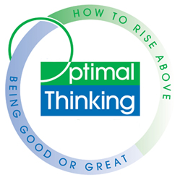Top Business Plan Writers in USA - 2025
List of the Top Business Plan Writers in USA
Wimgo takes pride in showing unbiased reviews on user satisfaction in our ratings and reports. We do not allow paid placements in any of our ratings, rankings, or reports.
Frequently Asked Questions About Business Plan Writers
It is actually possible for you to get both a business plan and a pitch deck done if the situation calls for it. That being said, it is important to note that a business plan and a pitch deck have different setups, so they should be treated differently.
If you are looking to have a potential client, partner or virtual capital investor learn more about your company, a pitch deck would be the most ideal situation. However, a business plan should be seen as a sort of guide or road map to your business and what you would like to achieve within a certain period of time.
When searching for a business plan writer, you should always consider a few factors such as if the business plan writer has prior experience in raising funds. This could be either directly as a licensed investment banker or indirectly as their written business plan has provided investment to the business in question.
You also have to take into account if they have any previous entrepreneurial experience. Whilst this is not mandatory, such experience can provide an added outlook into what you require from your business plan writer. This is because they understand the business layout and are much better placed to provide the necessary information.
While the main aim of a business plan writer is to provide you with a well-crafted business plan, it is possible that an additional funding service can also be added to that of business plan creation. It is important to note that this is only possible if the business plan writer in question is a licensed investment banker, specifically with both Series 7 and 63 designations.
When searching for a business plan writer there are a couple of questions you need to ask. For one, you need to ask just how much experience that business plan writer has, if they have been writing business plans for a number of years or if they are just starting out. Another question you have to ask is what the business plan writer’s track record is like. You really do not want to employ the services of someone that hasn’t created a business plan that has been delivered.
One of the keys to having a professional business plan is having one that involves adequate market research. Your chosen business plan writer has to have access to the necessary market research for your business. The last question to ask your prospective business plan writer is what the writing team consists of. You will need knowledgeable hands to create your business plans, individuals such as industry experts, financial experts, and any other necessary subject matter experts.
If your business plan writer is a one-man team, then you can expect it will take anything from a month to 8 weeks to create a business plan. This takes into account other factors such as if the business plan writer in question or the team has the required experience.
A great business plan does not mean just the plan itself, it also involves being able to transform validated assumptions into a clear strategy that capital allocators can buy into once they are shown. Hence, working with experienced business plan consultants can often mean spending weeks or even months to arrive at a final version.
The amount business plan writers tend to charge is influenced by a host of factors. For one it could be the type of plan you need. There are plans that can be as simple as an executive summary coupled with a financial worksheet, while others can be more than 50 pages with numerous years of financial projections.
Business plans written by a business plan consultant can cost upwards of $20,000. However, it is also possible to hire less expensive business plan writers for as low as $1,500.the more complicated plans tend to range into the high thousands, depending on the type of business plan writing service.
Generally speaking, all business plan writers are different. Some may have a very streamlined service utilizing software or templates, whereas others may more reflect a comprehensive business consulting engagement. However, the typical The business planning process is as follows:
Step 1 – Collect Information: More streamlined services may use a business plan questionnaire to collect this information, whereas others may meet in person or schedule meetings over video conference software.
Step 2 – Prepare a Draft: During this period, the business plan writers typically conduct market research, prepare financial projections, and research your business model to make a draft of your professional business plan.
Step 3 – Revise: Each business plan writing service you review will have a different policy for revisions. Typically, entry-level firms offer a restricted number of revisions whereas higher-end agencies provide several video conferences or even ongoing business consulting.
Business plan writers tend to concentrate on the writing of business plans and the preparation of any necessary final documents. A business plan writer’s job is typically limited to amalgamating the necessary words to compile a promising and attractive business idea.
The truth is, you do in fact, need a business plan writer if you have a rough business plan created and require a mix of convincing words to present your ideas for venture capital or even banks. So to sum it all up, if you are interested in raising money, then having a business plan writer is definitely worth it.
A business plan writer is one that creates a detailed description of a business’s plan for staffing, hiring, quality assurance, organizational and operational structure, user navigation, customer service, and more.
A business consultant offers an analysis of the existing practices of a business, whilst making recommendations for improvement. A business consultant typically specializes in a single area of business management, something like human resources.
The definition shows that there is some overlap in regards to the duties and responsibilities they both offer, however, the major aim of a consultant is to aid you in understanding the organizational process of your business, such as creating your business model, conducting market research, and even aiding you when it comes to raising money.

Need A Little Help?
Talk with a vendor expert for free. Get a list of companies
that will be great for you in just 15 minutes.
Business Plan Creation: Guide to Success
Regardless if you are raising money from investors or banks - or just want support with market research or strategic planning, preparing a professional business plan can be a helpful way to start or grow your business. This guide will assist you to be a master in the business planning process.
Before starting on your plan, you should first seek to define the purpose of creating it. Generally, there are two different reasons people prepare business plans:
Business Funding: Preparing a professional business plan for funding will generally be partitioned into two areas those for bank funding and those for equity financing (E.g. venture capital, angel investor). In this context, the business plan is more designed to communicate information externally for investor due diligence rather than designed to help you to make decisions or assist with your business strategy.
Strategic Planning: In this context, the purpose is more structured around helping management conduct a market analysis, put together your marketing plan, and better plan for your cash flow strategy. It is different than those for raising capital because the information is more granular and covers less information you already know.
Once you have determined the purpose or objective of your business plan, the next step is to determine what framework to use.
Business Plan Framework:
Many business plan writers have developed their own structure, but we've shared the most typical depending on your case.
Business Funding: The most common framework for a capital raise is the Sequoia Capital business plan format. This version is partitioned into three main sections: Business Description, Market Research, and Financial Forecasts. We break down this later in Step 2 in more detail.
Strategic Planning: These business plans tend to be more boutique and if you hire a firm more reflect consulting engagements. For higher-end agencies, you may define the scope which often includes market research, business strategy, and putting together a financial plan to help your company allocate resources.
For those raising capital, this is the most important part and where top business plan writers earn their value. According to the Sequoia Capital framework, business plans should present the 'Market Problem' their business addresses and the 'Solution' their business brings to address this. More extensive business plans will cover additional information about how your company will operate.
Every business plan is different and often many will have differing perspectives on the type of market research they would like to see. Typically, however, these will be some of the most important elements:
Target Market: In this part of the business plan, companies share information on the market they intend to focus on to provide their product or service. This could be as granular as creating customer personas, or as broad as defining a subcategory as an existing market. To conduct this market research, startups should conduct focus groups and surveys, but for existing companies, this can be based on historical information.
Market Size: The purpose of putting the market size in the business plan is designed to articulate the scalability of your market capitalization. For instance, if the size of your market is only $100 M, this means your business is from day one capped at how large it can be. This market research is typically conducted by identifying who your competitors are and then estimating their total aggregate size. There are often third-party market research reports available that you can directly reference in your business plan.
Key Trends: In your business plan, key trends often consist of market research you conduct to show that positive trends exist for your company and the industry is moving in the right direction overall. Things often included here include shifts in political environments, technological changes, or cultural changes that occur over a short period.
Not all investors will require that your business create financial projections, especially at an early stage. However, if they do it can be very time-consuming, and if you do not have prior experience preparing models, it may be a good time to get business planning assistance. However, if you do choose to go about it yourself, this guide will help you know what to include in your business plan.
Common things you want to make sure are included:
Burn Rate: This is your use of funds by category and how much money are you spending every month, particularly in light of your revenue projections, to help investors understand how efficiently you can manage their investment.
Unit Economics: This covers the key assumptions around the profitability of your business and is simply put your Cost of Goods Sold (COGS) in your financial model, but more complexly put, everything that goes into delivering a product or service and this depends on every business. For instance, the COGS in a manufacturing business plan is traditionally the cost of raw materials, whereas many may incorporate additional factors into the breakdown of the unit economics.
Scalability: This section of the financial forecast shows how your business will scale by covering the Capital Expenditures (CAPEX) required to do so. For instance, a software company can scale very quickly and indefinitely whereas a manufacturing business scales very slowly and requires larger buildings which tax the balance sheet.
Designing your business plan can be a helpful way to more effectively communicate market research, showcase your product, and represent your company brand.
There are a couple of different options when opting for business plan design.
Do-it-Yourself: If you choose to design it yourself, there are a few different options. You can use software, buy a template, or license a design software if you already know how to use it. What you choose will depend on your skill level and time commitment.
Hire a Company: There is a myriad of graphic design services online that can help to develop your branding and quickly prepare your business plan design. These companies range in their fees but often charge anywhere from a few hundred dollars to many thousands depending on the level of customization and quality.
After you've done a fantastic job and impressed investors with your business plan, many will continue their research on your company and ask follow-up questions. It is important that your team be prepared for these questions and is often recommended you prepare premeditated responses in your business plan or financial model.
Some common questions are:
How did you arrive at your financial numbers?
What is your valuation? Are you issuing equity or a SAFE/Convertible note?
How did you come up with the idea?
What if a large competitor introduces this product or service?
How are you different than your competitor? (Note: They will often cite a specific company)
Finding investors for your business is a tedious process that requires intense focus and patience. Many make a mistake by spending a lot of time refining their business plan but then hastily putting together an investor list and pitching their business. Below, we have included top tips to help you find investors:
Seek Feedback on your Business Plan: Most investors will not provide feedback on your business plan so it is important to generate this from a service provider (E.g. attorney, business plan consultant) or relationships you have. It is better they catch mistakes than your prospective investors.
Rehearse your Pitch: Companies pitching investors should spend time refining their elevator pitch either by using a service or requesting the time of those they have relationships with.
Conduct Research: Before you determine who you would like to pitch your business plan to, first research which venture capitalists are 'right' for you. They are often classified by Industry, Stage, Geography, and Business Model. In many cases, they may also be mission-driven and focus on specific groups (E.g. immigrants)
Prepare a List: After you have conducted research and shortlisted firms, it is recommended your company prepare a list of those you have determined appropriate for your business. Many use Google Sheets or Excel to help them in their investment marketing efforts.
Track your Outreach: Once you have prepared your list, track your outreach efforts so you can keep track of the stage, next steps, and notes with each investment company you have spoken with. Then, continue to build relationships with them over time.




















